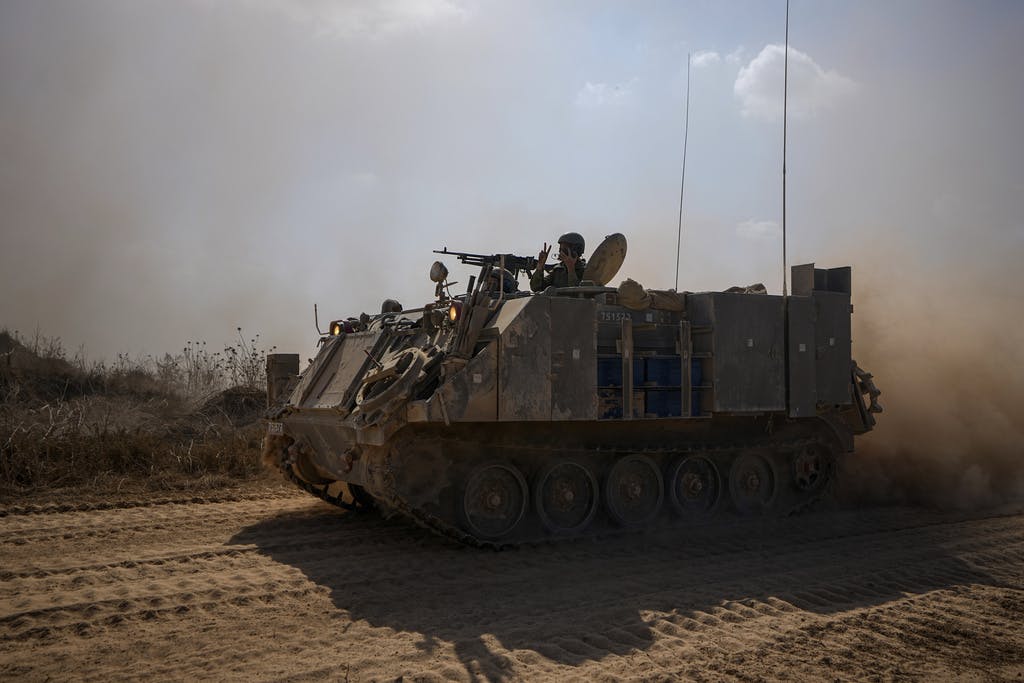Eastern Mediterranean Girds for Fallout as Israelis Ready a Possible Counterattack by Ground on Hamas in Gaza
Rockets are fired and tensions flare as Israel readies for a move to dismantle the Hamas terrorist apparatus.

ATHENS — It was purely coincidental, but a magnitude 4.4 earthquake that shook the Greek capital on the morning of Friday, October 13, served as a small reminder of the volatility sweeping the wider region, starting in Gaza as tensions with Israel soared.
The Middle East in general but also the wider eastern Mediterranean girded for the fallout from a potential Israeli ground invasion of the Gaza Strip to dismantle the Hamas terrorist apparatus that is based there.
On Friday morning, Hamas fired a reported 150 rockets at the Israeli city of Ashkelon. There was no immediate word about possible casualties. Overnight the IDF struck more than 750 targets in the Hamas-run Gaza Strip.
From Cairo to Athens, alarm is growing as the Middle East lurches to a new war.
On Thursday, Greece’s Council for Foreign Affairs and Defense, the country’s top body on defense issues, held an urgent meeting to discuss the latest developments in the latest Israel-Hamas war. Athens fears a new wave of migration and the arrival of potential under-the-radar terrorists. The meeting was chaired by Prime Minister Mitsotakis.
Measures to protect the country’s borders were also reportedly discussed.
“Borders cannot be violated, terrorist activity cannot go unanswered because in such cases, equal distances objectively favor aggression and authoritarianism,” Mr. Mitsotakis said earlier this week.
Athens has openly supported Israel following Hamas’s deadly attacks last Saturday. Most commercial flights between the Greek capital and Tel Aviv have been canceled, but numerous repatriation flights transporting foreign nationals wishing to leave Israel amid the mounting turmoil have transited through Athens’ international airport.
Some Greek press reported that government officials said Greece and Cyprus will be pressured by new waves of refugees who come directly from Gaza, the West Bank, and Lebanon. Europe is already grappling with a major migrant crisis, with Italy and Greece on the front lines of illegal arrivals of refugees and asylum-seekers by sea.
The officials explained that the EU needs to urgently revisit the 2016 EU-Turkey joint statement on the migrant crisis and develop a better way to manage migration flows.
Adding to the febrile atmosphere are mixed messages about what role Lebanon could have in the emerging theater of conflict. There have already been skirmishes in recent days along the Israeli-Lebanese border between elements of Hezbollah, the Iranian-backed terrorist organization based in Lebanon, and Israeli forces.
A former Lebanese defense minister, Yacoub Sarraf, stated this week that “Iran will not react if not attacked,” but how Hezbollah might react to events on the ground in Gaza remains to be seen.
On Friday, Turkey warned its nationals in Lebanon, particularly in the southern part, to leave the country.
Egypt has urged Israel to provide safe passage for civilians from Gaza instead of encouraging them to flee southwest toward Sinai, two Egyptian security sources reportedly said. Earlier this week, the Egyptian president, Abdel Fattah al-Sisi, said that the escalation in Gaza was “highly dangerous” and that Egypt was pursuing a negotiated solution to the violence with regional and international partners.
The Rafah border crossing remained shut and Egyptian military planes have been conducting overflights. The military has also taken up new positions close to the border, running patrols to monitor the area.
Rafah is the sole possible crossing point into Sinai for Gaza’s 2.3 million residents. The rest of the densely populated strip is surrounded by the sea, and by Israel, which has announced a total siege of Gaza and could launch a ground offensive at any moment.
The passage of people and goods in and out of Gaza is strictly controlled under a blockade enforced by Egypt and Israel.
In 2008, tens of thousands of Palestinians crossed into Sinai after Hamas blasted holes in a border wall.
Security in the area around Rafah is also of concern to Egypt because Sinai has been the site of an Islamist insurgency that flared a decade ago. Hamas, which has run the Gaza Strip since 2007, shares the Islamist ideology of the Muslim Brotherhood, a movement outlawed in Egypt.

